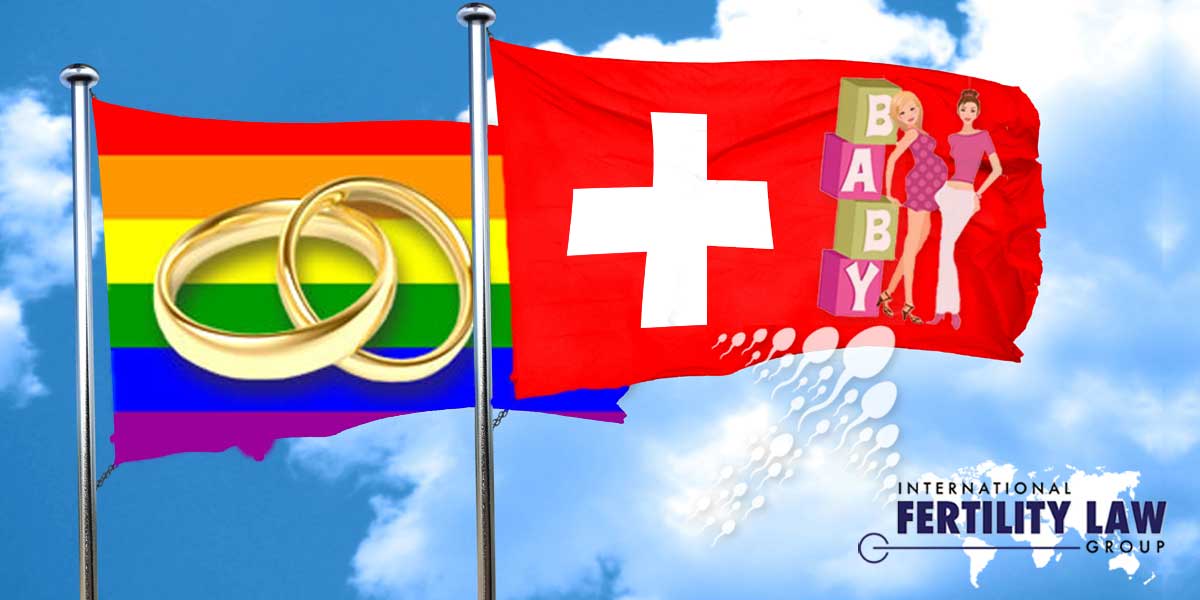
31 Aug 2021 Switzerland to vote on LGBTQ marriage
Swiss voters will decide September 26 whether to legalize same-sex marriage, a change in the law that also would give lesbian couples access to donor sperm and same-sex couples the ability to adopt children together.
Both houses of the Swiss parliament approved the new law in December 2020, but right-wing conservatives mounted an opposition campaign, gathering the 50,000+ signatures needed to force a national referendum.
Swiss “registered partnerships” not equal to marriage
Every year, some 700 Swiss couples enter into “registered partnerships,” a civil status exclusively for same-sex couples, which gives them some, but not all, the rights and protections of marriage, as reported by SWI swissinfo.ch, a branch of Swiss Broadcasting Corporation SRG SSR. Registered partners may share a surname, are protected from rental discrimination and are eligible to inherit or receive pension benefits from their partner. They do not receive favorable immigration status for non-citizen partners and cannot adopt children jointly as a couple.
If approved by voters in September, registered civil partnership will end in Switzerland. The new law will allow registered partners to transfer their existing partnership to a legal marriage or to remain in their existing registered partnership; however, no new registered partnerships will be allowed. The Swiss federal administration is working on replacing registered partnerships with a type of civil union based on the French model, swissinfo.ch reported. “The idea is to create a structure with less extensive legal consequences than marriage for both heterosexual and gay couples.”
New Swiss law would help lesbians, not gay men, become biological parents
Under the new “marriage for all” law, same-sex couples would also be able to adopt a child together. Non-citizen partners may benefit from a shorter and less expensive naturalization process.
Married lesbians also would have access to Swiss sperm donations and would be recognized as the mothers of any resulting offspring from birth. However, if the intended mothers use a sperm donor from another country, only the biological mother would be recognized as a legal parent.
The new law will do nothing to change the status of surrogacy or egg donation, both of which are banned in Switzerland—which means that “marriage for all” will (for now) do nothing for gay men who want to become parents via assisted reproduction.
Switzerland lags most of Europe in approving same-sex marriage
Switzerland is one of the few holdouts among European nations in not permitting same-sex marriage, along with Italy, Greece and Liechtenstein, and is ranked just ahead of Estonia and Serbia on a survey of LGBTQ rights by ILGA-Europe, the European Region of the International Lesbian, Gay, Bisexual, Trans and Intersex Association.
In the two decades since Netherlands became the first country in the world to legalize same-sex marriage in 2001, 29 countries have done so, including the United States in 2015. However, in many parts of the world, homosexuality is still considered a crime, and in 10 countries it is punishable by death.
Now in its eighth year, the effort to legalize same-sex marriage in Switzerland was launched in 2013 by a parliamentary initiative from the centrist Liberal Green Party. Legislators debated several versions of the law before approving an amendment to the civil code to legalize marriage between two women or two men in December 2020.
While Switzerland shares a Christian, culturally conservative heritage with other Western nations such as France, as we reported, a February 2020 survey by Pink Cross, a Swiss gay rights organization found that more than 80 percent of Swiss responded in support of same-sex marriage.
Legalizing same-sex marriage a welcome step toward LGBTQ equality
As elsewhere, the effort to establish equal rights for LGBTQ people in Switzerland advances in fits and starts. As promising as the Swiss referendum is for hundreds of LGBTQ couples and their families, the new law would still fall short of full “marriage equality” for all.
To begin with, unlike heterosexual couples, because of Switzerland’s continuing bans on egg donation and surrogacy, gay men who want to become parents will still be forced to travel to other countries for assisted reproduction services, then navigate the additional hurdles of establishing legal parentage and Swiss citizenship to bring their babies home. Even under the new law, same-sex married couples would not be entitled to the same survivor pension rights enjoyed by heterosexual married couples. Amnesty International also points to Switzerland’s lack of laws protecting transgender individuals from discrimination and to its failure to properly assess risk to LGBTQ foreign nationals threatened with deportation, as The European Court of Human Rights ruled recently.
As history teaches us, even the best of laws don’t necessarily change hearts and minds—but they do have tangible, practical impacts on countless lives. If Swiss voters do the right thing on September 26, thousands of children living today in households with two moms or two dads will benefit from the financial, social and symbolic benefits that come with equal legal recognition of their families. With any luck, hearts and minds will evolve on the issues of egg donation and surrogacy, survivor pensions and other issues related to same-sex marriage, as has happened elsewhere. For now, Switzerland has a chance to take one significant step forward out of the neutral zone on marriage—a very welcome step forward.

















